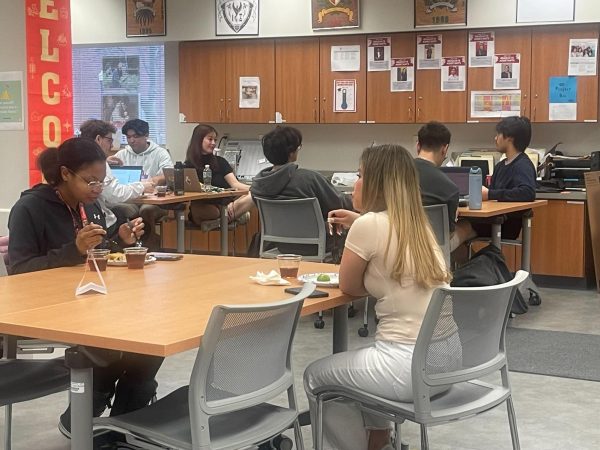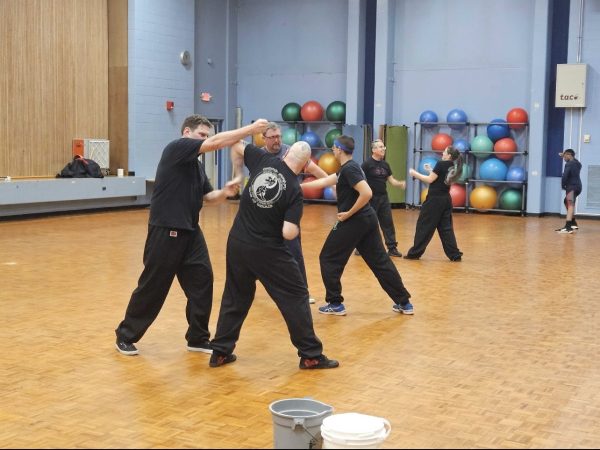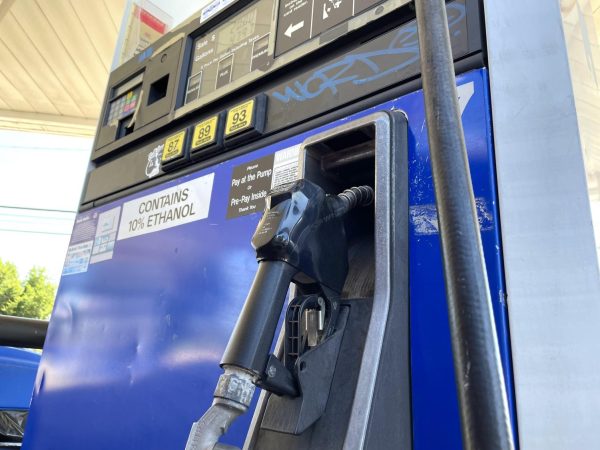Bike-share program launches on campus
April 26, 2018
DeKALB — A campus bike-sharing option launched Tuesday offering students a free month of service.
VeoRide’s bikes will be free until May 24 followed by discounted rates for three months. Once the three-month period ends, the service will charge its regular rate of 50 cents per 15 minutes, according to NIU Parking Services webpage.
Using the VeoRide online app students, faculty and staff will be able to find, reserve, pay and unlock any available VeoRide bike within the school’s perimeter, according to the NIU Parking Services webpage.
In addition to the pay-as-you ride payment option, there are daily, monthly and annual passes available on the VeoRide app, according to the NIU Parking Services webpage.
Campus Services Director Laura Lundelius said her department, NIU students, Campus Parking Services, Environmental Studies, DeKalb Sycamore Area Transportation Study and City of DeKalb collaborated together to provide a bike-sharing program with NIU.
Lundelius said there will be 100 bikes on campus, and VeoRide expects to partner with DeKalb city officials in the fall after analyzing how the bikes are being used. VeoRide monitors the use of its bikes through a tracker, which the company will refer back to when considering building future infrastructures, according to the VeoRide webpage.
VeoRide co-founder Candice Xie said VeoRide helps university towns reduce automobile congestion, however, there are small issues, such as riders not returning bikes back to racks within the parameter and riders impeding pedestrian traffic.
“We encourage students to be a good student, good community member, take care of public services and take care of the community,” Xie said.
Xie said VeoRide approached NIU in August, and the university has been working hard to bring a good alternative transportation service to students.
Edwin Tan, VeoRide CEO and co-founder, said his company designed and engineered the bikes from the ground up.
He said VeoRide collaborated with a team of mechanical engineers to come up with the first prototype in the first six to eight months.
VeoRide put the bike through testing labs where 400 pounds were put on the seat, and 200 pounds were put on the handlebars to make sure the bike would withstand extreme scenarios.
“It is very different from a personal bike; the bike shape is for a variety of users,” Tan said. “People have different size, different height, different expectations.”
Ludelius said bike-sharing companies LimeBike, Zagster and VeoRide presented to different student organizations, school departments and the DeKalb community. She said the majority out of 25 individuals voted and were impressed with VeoRide.
Ludelius said NIU did not chose LimeBike because it didn’t have a system to reserve the bike. She said Zagster was going to be extremely costly to the university and the city because NIU was going to have to help them find partners to help them pay for $10,000 bike stations.
“We started thinking about this last year when we were chartered to review our current bike program,” Lundelius said. “Because of sustainability issues, lack of funding and lack of staffing to maintain bikes.”
Lundelius said NIU does not gain any profit from the bike sharing program; the profits go directly to the company.
“The pricing seems OK,” said Montell Rutherford, senior computer science major. “For students, pricing is not really ideal to think about since the previous system was free, but cost of maintaining the bikes is understandable for why its charging so I guess it is fair.”
Ludelius said university officials hope the affordable alternative decreases the vehicular traffic for every bike to five vehicles on campus. She said campus services will not be reducing campus spaces because of VeoRide.
“I am hoping that this program is successful and catches on because I think that it would be a great benefit to the university and the community of DeKalb,” Ludelius said.













